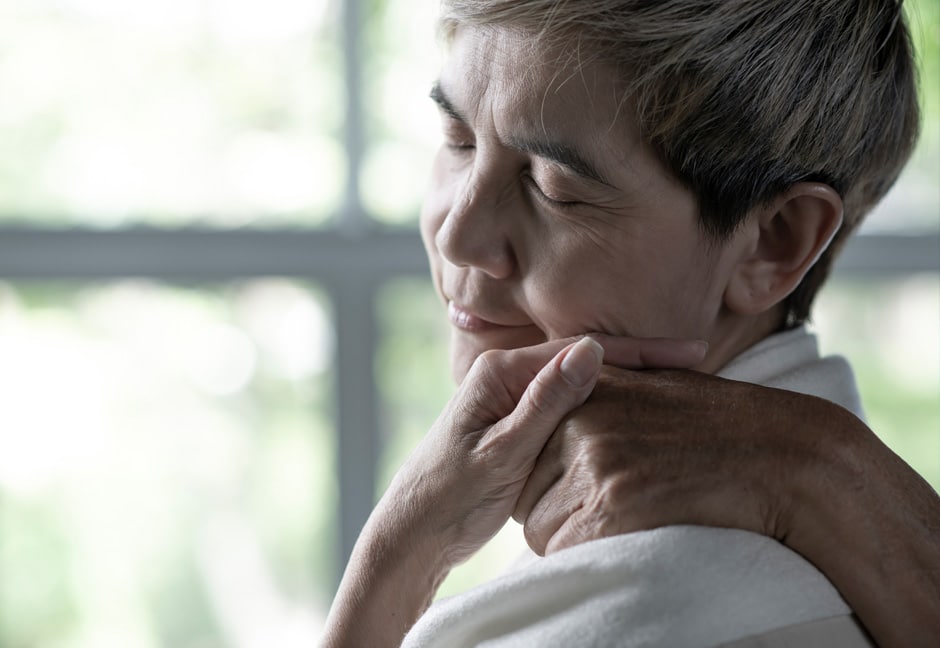What is suicide awareness month?
The MIND 24-7 Team | September 27, 2023
We can all benefit from discussing mental health; some topics are easier to discuss than others. One of the most challenging and painful topics to talk about is suicide. Even still, it is important to come together, recognize those affected by suicide, and talk about suicide prevention. After all, even one conversation can save a life.
While suicide prevention is important to address every month, suicide awareness month is a dedicated time to focus on mental health, learn about resources, recognize that it is okay to talk about suicide, and remind those we love that it is okay to ask for help. But when is suicide awareness month, and what is suicide awareness month? In this blog, we answer these questions, explain the history and importance, and share ways to get help.
FOR HELP RIGHT NOW:
- Crisis Text Line: text TALK to 741741.
- The National Suicide Prevention Lifeline: call 988.
- The Trevor Project: text START to 678-678 or call 1-866-488-7386 or chat online. (Note: the Trevor Project serves LGBTQIA+ youth.)
When is suicide awareness month?
Suicide prevention awareness month happens every September. This month, people wear a purple and teal ribbon to bring awareness, signify hope and courage to overcome mental health challenges, and support suicide prevention. The dedicated month is a time to remember those who died by suicide, acknowledge the people impacted by suicide, and raise awareness of hope and resources for help.
The history behind suicide awareness month
Suicide is a growing epidemic that often remains hidden because people who have suicidal thoughts usually feel like they cannot tell anyone. In 2008, September was made the National Suicide Prevention Awareness Month to start conversations, reduce stigma, and help people help themselves and others.
The importance of recognizing suicide awareness month
Suicide is a tragedy that affects many people, and it is a leading cause of death. According to the CDC, in 2022, almost 49,449 people died by suicide in the United States.
Here are some additional facts to note:
According to the National Alliance on Mental Illness (NAMI)
- Suicide is the 2nd leading cause of death among people aged 10-34 in the United States.
- More women are likely to attempt suicide than men, but men are 4X more likely to die by suicide.
- Transgender adults are nearly 9X more likely to attempt suicide than those who are not transgender.
- Lesbian, gay, and bisexual youth are 4X more likely to attempt suicide than straight youth.
- 46% of people who die by suicide have a diagnosed mental health condition, but as many as 90% may have experienced symptoms of mental health conditions.
- The highest rates of suicide are among American Indian/Alaskan Natives, followed by non-Hispanic white people.
Recognizing suicide awareness month shows that it is okay to talk about suicide. Having open conversations reduces stigma and increases the likelihood that people will feel comfortable getting help when they need it. Suicide awareness month is an important opportunity to learn the risks and warning signs and spread the message that suicide can be prevented.
Social media is changing the way people talk about suicide. Staying up to date with social media code words and trends is crucial to having productive conversations and recognizing the warning signs. For instance, on TikTok, the hashtags #unalivemeplease and #unaliving are used for content about suicide instead of the word suicide itself because TikTok redirects all content using the word “suicide” and instead displays the number for a local crisis helpline.
To talk about depression or suicidal thoughts, TikTokers commonly use phrases and concepts from a poem by Hannah Dains titled Don’t Kill Yourself Today. The poem lists reasons to keep on living for one more morning, “even if it takes 10,000 of those “one more mornings” before you get to “I can’t wait for tomorrow.” The poem includes lines such as “Don’t kill yourself until you tell someone your best pasta recipe” and “Don’t kill yourself until you finish your shampoo and conditioner at the same time.” So if someone says, “My Netflix subscription ran out” or “I finished my shampoo and conditioner at the same time,” it is likely a sign they are struggling and need help.
Suicide awareness month resources
If you ever find yourself wondering, “Who do I call when my thoughts get too dark?” know there are many people here and ready to help. Here are some options for help that are available 24/7/365:
- Crisis Text Line: text TALK to 741741.
- The National Suicide Prevention Lifeline: call 988.
- The Trevor Project: text START to 678-678 or call 1-866-488-7386 or chat online. (Note: the Trevor Project serves LGBTQIA+ youth.)
- MIND 24-7: Open 24 hours a day, every day of the year, including holidays, MIND 24-7 offers walk-in treatment for mental and behavioral health concerns, including depression and suicidal thoughts. We can help anyone who walks in needing mental health care. All adults and youth are welcome—regardless of their ability to pay. We accept private insurance, Medicare, and AHCCCS, and will never turn someone away. Through Crisis Care, a child or adult experiencing a crisis can get help, stabilize, and go home or move to inpatient care. If you or a loved one needs mental health care in minutes—not days or weeks—visit one of our convenient locations in the Phoenix area or text/call 1-844-MIND247.

